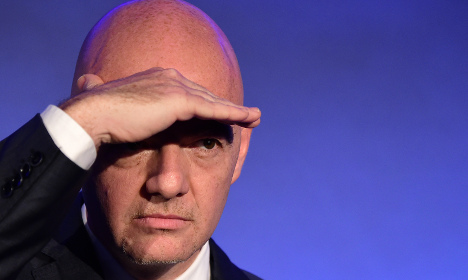“This is not the time for deals,” the 45-year-old UEFA executive told the Swiss weekly, Le Matin Dimanche.
He was responding to a question on whether he might consider a deal with his main opponent Bahrain's Asian Football Confederation president Sheikh Salman Bin Ebrahim Al-Khalifa ahead of Friday's vote.
“There is no question of that… I think a democratic election is fundamental for the credibility of FIFA as an institution,” Infantino said.
FIFA is in the throes of an unprecedented, wide-ranging scandal that has seen senior football executives suspended or fired, with disgraced long time president Sepp Blatter and fallen head of European football, Michel Platini the most high-profile casualties.
FIFA, Infantino insisted, “must be headed by a president legitimised through an election.”
“There is no doubt: I will be in Zurich on February 26 to win the election,” he said, stressing that “an electoral congress for the presidency is like the World Cup final: you have to win it.”
In addition to Salman, Infantino faces competition from South African businessman Tokyo Sexwale, Jordan's Prince Ali bin Al Hussein, a former FIFA vice-president, and former FIFA official Jerome Champagne of France in the vote of FIFA's 209 federations.
Infantino, a Swiss lawyer who only announced his candidacy after long-time favourite for the post Platini was caught up in the scandal and suspended from football for eight years, stressed that he was “not seeking power.”
“A couple of months ago, I was not even thinking about launching into this adventure. But football is going through a difficult period. Some people therefore must step up and take their responsibility,” he said.
Infantino, who worked closely with Platini for nine years, also expressed “admiration for the dignity with which (the fallen UEFA chief) has gone through this ordeal.”
“It is comforting to know that he is morally behind me,” he said, adding that the two continue to “have friendly exchanges.”
At the same time, he added: “He is concentrating on his defence and me, on my campaign.”




 Please whitelist us to continue reading.
Please whitelist us to continue reading.